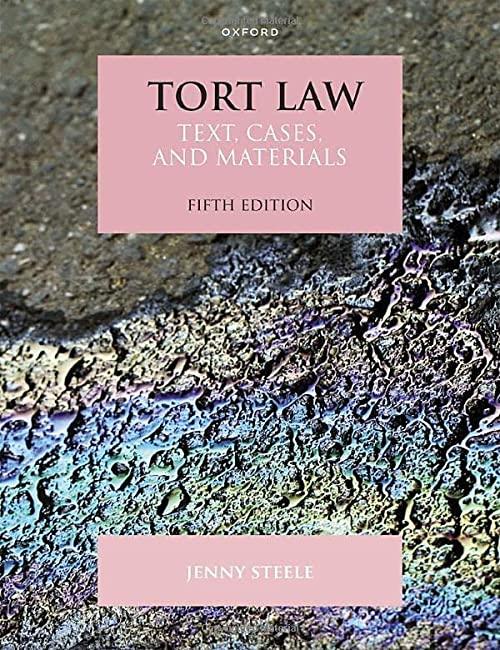Question
Ngato is in prison for raping and murdering a woman, Mrs. Honey, fourteen years ago. Ngato has been diagnosed with cancer and is terminally ill.
Ngato is in prison for raping and murdering a woman, Mrs. Honey, fourteen years ago. Ngato has been diagnosed with cancer and is terminally ill. In November 2014, Ngato applies to the Correctional Supervision and Parole Board ('Parole Board') for medical parole.
In terms of s 79 (1) of the Correctional Services Act 111 of 1998, any sentenced offender may be considered for placement on medical parole by the Parole Board if:
'(a) such offender is suffering from a terminal disease or condition or if such an offender is rendered physically incapacitated as a result of injury, disease or illness so as to severely limit daily activity or inmate self-care;
(b) the risk of re-offending is low; and
(c) there are appropriate arrangements for the inmate's supervision, care and treatment within the community to which the inmate is to be released.
In December 2014, the Parole Board decides to refuse Ngato's application on the basis that even though he is terminally ill, he has not yet been rendered physically incapacitated by his illness (you can accept for the purposes of this question that this information is factually true). The board also adopts the view that refusing him parole will send a strong message to society that heinous crimes especially against vulnerable members of society such as women will not be tolerated.
The Board also informs Ngato that he must still undergo a further rehabilitation programme (he had already completed one rehabilitation programme before in May 2014) before he can be eligible for parole. This is the first time that Ngato has been informed of the need to undergo a further rehabilitation programmme. When Ngato first applied for medical parole in March 2014, the chairman of the Parole Board promised him that he would be granted parole the next time he applied provided he completed a rehabilitation programme.
1.1 Discuss THREE grounds of review upon which Ngato can challenge the Board's decision, made in December 2014, to refuse him medical parole.
Page 20 of 21
1.2 Ngato wants to know whether he can bring his application for judicial review in July 2015 as he needs to undergo some medical treatment in the interim. Advise him on the legal position.
1.3 Ngato wants the court to make an order granting him medical parole instead of referring the matter back to the Parole Board. Explain whether the court may grant such an order under these circumstances.
1.4 Ngato argues that he is entitled to parole as the chairman of the Parole Board is obliged to honour the promise that he made to him in March 2014. Advise him on the legal position. In answering this question do not discuss any aspects pertaining to procedural fairness (including the doctrine of legitimate expectations).
Step by Step Solution
There are 3 Steps involved in it
Step: 1

Get Instant Access to Expert-Tailored Solutions
See step-by-step solutions with expert insights and AI powered tools for academic success
Step: 2

Step: 3

Ace Your Homework with AI
Get the answers you need in no time with our AI-driven, step-by-step assistance
Get Started


